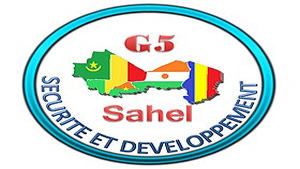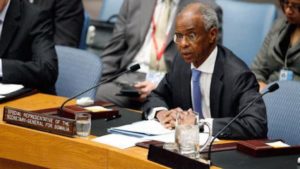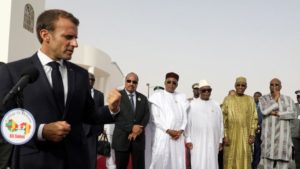Mali: democracy, dogmatism and insecurity.
After Niamey last week, the Economic Community of West African States, ECOWAS, is meeting tomorrow Tuesday in Accra, to further deliberate on the situation in Mali. Opposed to unconstitutional changes, only if initiated by the military, ECOWAS does not have a unanimous position on the case of Mali. A country that is experiencing an exceptional

 The Sahel is caught in the grip of three major phenomena that threaten its bases: ambient insecurity with the corollary of the great humanitarian challenge to which the coronavirus has recently been grafted. The G5 Sahel countries have declared the coronavirus pandemic now the public enemy number 1. This group included, as of May 21, 2020, 3,366 patients declared positive with Covid 19, of which 2,125 who were cured and 224 deceased. Managing this triple battle requires pragmatism and imagination on the part of the national political authorities and their technical and financial partners.
The Sahel is caught in the grip of three major phenomena that threaten its bases: ambient insecurity with the corollary of the great humanitarian challenge to which the coronavirus has recently been grafted. The G5 Sahel countries have declared the coronavirus pandemic now the public enemy number 1. This group included, as of May 21, 2020, 3,366 patients declared positive with Covid 19, of which 2,125 who were cured and 224 deceased. Managing this triple battle requires pragmatism and imagination on the part of the national political authorities and their technical and financial partners. « The only thing we have to fear is fear itself, » proclaimed President Franklin D Roosevelt to his compatriots struck by the Great Depression. Ninety years later, that message remains valid against the Covid19.
« The only thing we have to fear is fear itself, » proclaimed President Franklin D Roosevelt to his compatriots struck by the Great Depression. Ninety years later, that message remains valid against the Covid19. In the Sahel, where an armed conflict has been ongoing since 2012, today, the greatest risk is »the war of each against all ». The widespread civil war situation evoked by Thomas Hobbes in the 17th century looms over the Sahel and already exists in Libya.
In the Sahel, where an armed conflict has been ongoing since 2012, today, the greatest risk is »the war of each against all ». The widespread civil war situation evoked by Thomas Hobbes in the 17th century looms over the Sahel and already exists in Libya. In Burkina Faso, Mali and Niger, civil society organizations (CSOs), opposition parties, as well as workers and students’ unions are increasingly protesting against foreign forces presence in their countries. These attitudes stem from several motivations: respect of the Independence spirit that had led the new States, such as Upper Volta (now Burkina Faso) and Mali, to demand the departure of the French army from their territory and also the relative weak results of said foreign armies in their support to the fight against terrorism.
In Burkina Faso, Mali and Niger, civil society organizations (CSOs), opposition parties, as well as workers and students’ unions are increasingly protesting against foreign forces presence in their countries. These attitudes stem from several motivations: respect of the Independence spirit that had led the new States, such as Upper Volta (now Burkina Faso) and Mali, to demand the departure of the French army from their territory and also the relative weak results of said foreign armies in their support to the fight against terrorism.